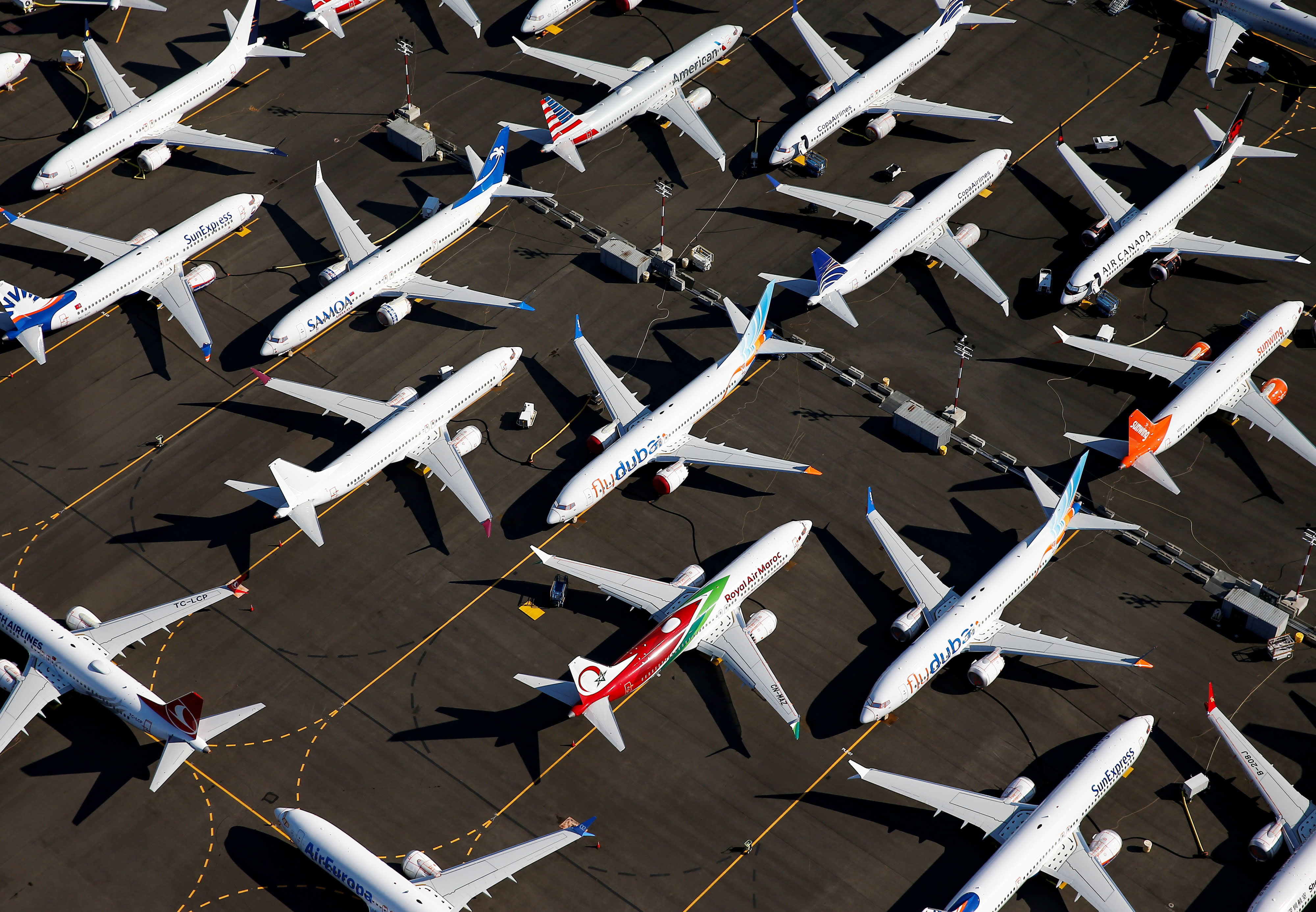Grounded Boeing 737 MAX aircraft are seen parked in an aerial photo at Boeing Field in Seattle, Washington, July 1, 2019.
Lindsey Wasson | Reuters
The coronavirus pandemic, the threat of airline bankruptcies and a global recession. Now a historic oil glut and price crash are adding to the woes of Boeing and Airbus.
The duopoly that dominates most of the world’s aircraft production spent more than a decade racking up record orders for planes they boasted could save millions in fuel.
“One thing that kept the industry aloft during the great financial meltdown [in 2008] is fuel prices actually rose,” said Richard Aboulafia, an aviation analyst at vice president at Teal Group, referring to record oil prices that year.
Rising oil prices can help boost sales of more fuel-efficient aircraft, the opposite of sales trends for larger personal vehicles like SUVs.
The Airbus A320neo and the Boeing 737 Max, each manufacturer’s best-selling narrow-body airplanes were developed after the Great Recession when fuel prices were again rising and airlines were on the hunt for models that would help them cut fuel costs. Both companies amassed years of orders for thousands of planes.
But manufacturers have lost that selling point, adding to a slate of challenges that are expected to last at least into 2021, if not later, and a sharp turnaround from earlier this year when airlines couldn’t get new single-aisle airplanes fast enough.
Aboulafia estimates that manufacturers of large aircraft like Airbus and Boeing should net around 1,000 canceled orders this year combined, an unprecedented drop compared with 681 net orders last year. Boeing, already reeling from the grounding of its 737 Max after two fatal crashes, is posting an increasing number of canceled orders. Airbus, for its part, earlier this month said it would cut aircraft production rates by about a third “to adapt to the new Coronavirus market environment.”
As the pandemic causes travel demand to crater and cities lock down, jet-fuel demand is falling faster than other products made from oil. Globally, jet-fuel demand is set to drop 47% in the second quarter from a year earlier, nearly twice the rate of the forecast decline in gasoline consumption and more than three times the rate of the drop in diesel, which is crucial for freight transportation, according to estimates from S&P Global Platts. Jet-fuel prices in the U.S. fell more than 65% since the start of the year as of Friday’s close.
“The problem that’s what’s happening right now is [the crisis] is hitting all the countries at the same time,” said Claudio Galimberti, energy analyst at S&P Global Platts.
Airlines are now focused on slashing flights to match paltry demand from would-be travelers as they navigate stay-at-home orders and other severe measures aimed at stopping the virus from spreading.
Those carriers are also parking hundreds of planes and deferring orders of new planes. Some customers are canceling orders altogether, spelling more pain for aircraft manufacturers. While airlines are planning to accelerate the retirement of older, less fuel-efficient jets, but that isn’t expected to be enough to spur a flurry of new orders with a recovery in air travel demand still unclear.
As of April 15, U.S. airlines had idled more than 2,700 planes, more than 44% of their fleet. Airlines for America, a lobbying group that includes American, Delta, United Southwest and other large U.S. carriers, said as of April 15, U.S. airlines had idled more than 2,700 planes, more than 44% of their fleet.
